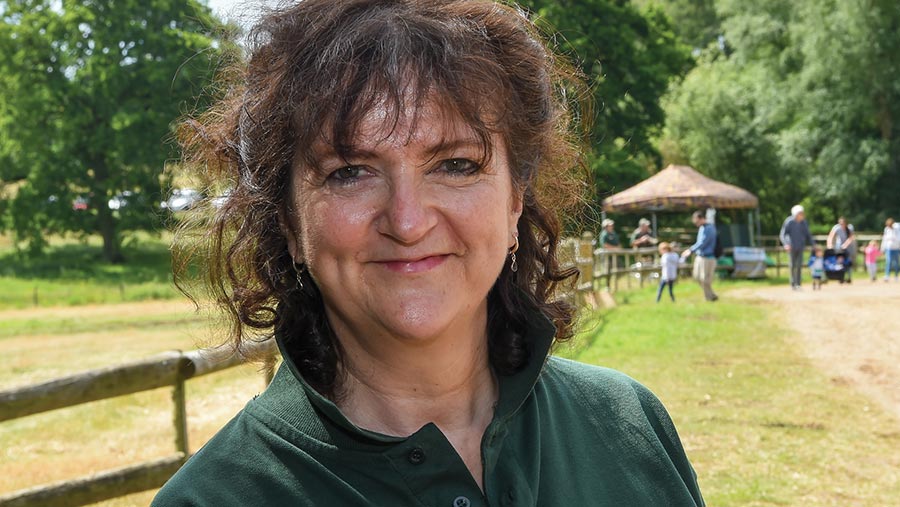Opinion: Farming has key role in meeting society’s needs
 © Caroline Drummond
© Caroline Drummond Caroline Drummond is the chief executive of Linking Environment and Farming (Leaf).
Here she sets out why she believes farming is on the brink of something big, as it contributes to better food, better health and a better environment.
This is the moment for farming. The spotlight is on climate change and the environment. We have a real opportunity to take leadership and show that the UK farming sector is up for change.
We can demonstrate our responsibilities and, more excitingly, discover new ways, through better management practices, innovation and technology, to do what we do best – produce food with responsibility and act as stewards of the countryside.
Leaf is launching its 10-year strategy (Friday, 20 November). It sets out our ambition to play a demonstrable part in transforming farming and food systems, to drive positive action for climate, nature, the economy and society.
Carbon zero
First, we need to take climate-positive action, supporting global targets and the NFU’s ambition for net zero carbon by 2040.
We will focus on a practical drive to improve soil health, build our capability to sequester carbon and work with others to find alternatives to fossil fuels and limestone, as we aim to stop the extraction of deep-stored carbon.
We are already seeing benefits on farm through the adoption of minimum tillage, cover crops, improved rooting depths, the inclusion of grasslands in arable rotations, smarter use of manures and livestock management, agroforestry and managing existing woodlands.
There is a real opportunity for agriculture to take the lead – restoring health, protecting the environment and slowing down the impact of climate change
ELM
Second, we must embrace our role in protecting and enhancing nature and biodiversity. Nearly every major problem we face in society can be reduced through better management of our food production systems.
The Environmental Land Management (ELM) scheme and the new support mechanisms will help facilitate some of this as farmers receive “public money for public goods”.
But there is so much more we can do. Farm productivity and environmental health can be supported through farmers’ capability to balance nature-based solutions alongside technology and innovation to accelerate and scale up change.
Health and wellbeing
Third, we should recognise that food and nutrition are the bedrock of society. We need to develop the building blocks that connect health, wellbeing, nutrition, farming and education, creating sustainable diets and food systems.
The investment in reducing the burden of non-communicable diseases, such as diabetes, cancer and heart disease, will have high returns. Feeding a world without nourishing it at the same time is not sensible. We all need to do more and ensure that health is embedded as a value when we buy food.
We will also be growing our network of demonstration farms and innovation centres, increasing the value offer of our environmental assurance system, Leaf Marque, for all sectors. And we will be building on our Leaf Education work, engaging with society, such as through Open and Online Farm Sunday.
We know the challenges and some of the solutions. There is a real opportunity for agriculture to take the lead – restoring health, protecting the environment and slowing down the impact of climate change.
But achieving more sustainable farming is a collective responsibility. We all have a stake in our environment and the health of our planet. There is no single solution. It is imperative that we work together, experiment, adapt and adopt new approaches.
These next 10 years are an exciting opportunity to build on the foundations we have laid down, to deliver productivity and prosperity among our farmers, enrich the environment, improve health and engage with young people and society.
